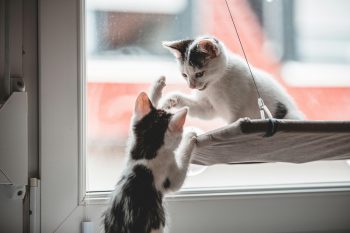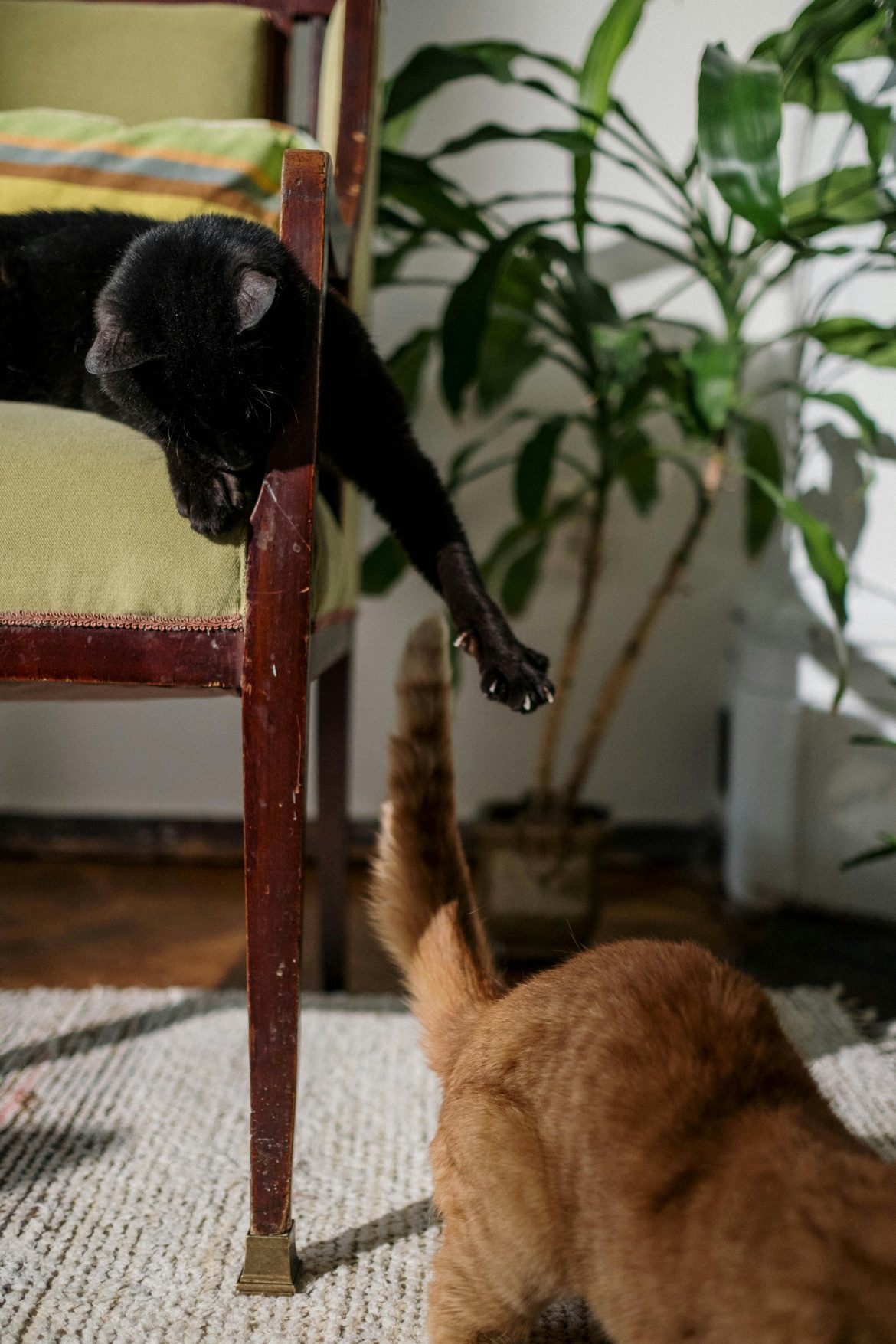Your cat is more than just a pet—they’re family. But these independent creatures can sometimes get into sticky situations, even if they’re indoor cats. That’s why you need to cat-proof your home.
Whether you’ve always had cats, or have just brought home a new kitten, here are some essential tips to make your home a safe haven for your furry friend.

Pexels
Secure tall furniture
Cats are natural climbers, often scaling the tallest furniture to find a perch with a view. However, tall, unsecured furniture can be a hazard if your cat decides to make it their new playground. Top-heavy items like bookshelves or cabinets can topple over if your cat disrupts their balance. To prevent accidents, secure these pieces to the wall or floor using brackets or anchors. This simple step can save your cat from serious injury and protect your belongings.
Store breakable valuables safely
Cats love to explore, and in their adventures around the house, they might knock over and break valuable items. Whether it’s a delicate vase, a treasured statue, or a porcelain figurine, anything within reach is at risk. To avoid any heartbreak, consider placing these fragile items in cabinets or on shelves that are out of your cat’s reach. Not only will this keep your valuables safe, but it will also save your cat from potential harm from broken glass or ceramic.
Protect electrical cords
Electrical cords can be a tempting target for cats, especially those with a penchant for chewing. This habit isn’t just annoying—it can be dangerous. Cats who chew on cords risk serious injury or even electrocution. To keep your cat safe, invest in cord protectors that cover your wires, making them less appealing to your curious feline. Alternatively, try to keep cords out of sight, tucked behind furniture or secured along baseboards.

Pexels
Choose non-toxic houseplants
Houseplants can bring life and beauty into your home, but not all of them are safe for cats. Many common houseplants and flowers are toxic to cats if ingested, leading to a range of health issues from mild irritation to severe poisoning. If you’re a plant lover, do your research before bringing any greenery into your home. Opt for cat-friendly plants like spider plants, Boston ferns, or cat grass, and keep any potentially toxic plants out of your cat’s reach—or better yet, out of your home entirely.
Cat-proof your bathroom
Bathrooms can be a dangerous place for curious kittens. Small enough to fall into the toilet and drown, young cats are especially vulnerable. Keep toilet lids closed, and if you have a particularly adventurous kitten, consider keeping the bathroom door closed when not in use. Additionally, store any medications or cleaning products in cabinets that are securely closed, as ingesting these items can be harmful or even fatal to cats.
ALSO SEE:
Featured Image: Pexels
A version of this article was orignally written by Chumasande Matiwane on Garden&Home.

